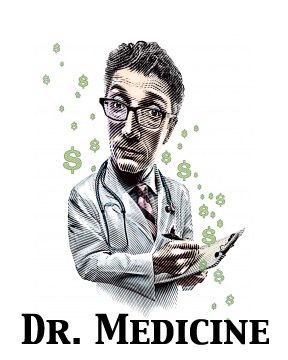
Career
Colds - A New Approach to Treatment
Ways to get healthy also stop colds
Posted January 29, 2015

Cold Comfort
A cold often proves a miserable experience. For some it may become a life threatening one. Yet approaches to cold prevention and treatment generally fail. Why? Viruses are adaptive, always mutating, and ubiquitous—they’re everywhere you look plus where you don’t. And America is still captured by the narrow horizons of standardized medical care—we don’t have drugs for colds, so what can we do? So let’s contrast the experience of a physician of today with the physician empowered with a four fold, regenerative view of health—a new wave of treatment which may arrive the day after tomorrow.
Standard Physician's Approach
She opens the chart and - oh gosh, not another cold. Okay, at least I can write down a better sounding title for insurance purposes—upper respiratory infection. Then I’ll add some modifiers.
What caused it? Options are too numerous to count. Thousands of viruses, weird groups of bacteria, plus an entire panoply of undiagnosable allergies. And before my patient opens her mouth I know she’ll want antibiotics.
But I don’t want to give antibiotics because: 1.) They won’t work. Viruses don’t care much that you’re carpet bombing neighboring bacteria—they stay safe. 2.) I’ll be creating further antibiotic resistance. I’ve already got people in the hospital with bugs I can’t treat. Even if they find new superantibiotics in Madagascaran soil, those little miracles won’t help me—or my patients - for years 3.) The Affordable Care Act demands I hit my care guidelines, and the guidelines make clear you don’t write antibiotics for colds.
So how do I get out of this? My patient is tough—and her husband is a lawyer. She's also diabetic.
That gives me my way out. Diabetics can get superinfected – sometimes. So I’ll play up her fever—she doesn’t have flu, thank the lord—and all the junk coming out of her nose and write it up as an emerging bronchitis. Then I’ll give her an antibiotic that won’t work but which is already so bacterially resistant I can’t make it more useless. Maybe that will get the ACA boys off my neck.
Next!
The Regeneration Health Physician Approach
Why does this person have a cold? Why now? What might have been done to prevent it, and can prevent it in the future?
Let’s look at four factors. First the physical: She’s been diabetic for two years. She started gaining weight about five years ago, after her son started taking drugs. She doesn’t exercise and is a total foodie. Getting her to cook the Mediterranean diet may require a papal encylical.
She’s also been travelling. Airplanes are the superbowl of viruses. She has not been sleeping well—more bad news, as poor sleep really jacks up cold susceptibility. And chance itself means loads of people will randomly get colds. Total prevention is impossible.
Mental health: She’s stressed as all get out. The husband has been more distant since he became a managing partner. The kid in college is okay, but the eldest son is a mess. Her sleep is off, she’s eating more, she’s anxious and unmotivated. Not there yet, but she’s on her way to clinical depression.
Socially: Loads of friends. Yet many are little more than social obligations of her husband’s firm. She hates making parties for strangers, but “I can’t change anything.”
Spiritually: She lives for her kids. But both are out of the house. She has a degree in education, but has not taught for twenty years. It’s not clear her husband would let her work.
What to do? Start with over the counter stuff—a placebo should help, while antibiotics might make her worse—she always has a tender stomach.
Next I’ll tell her straight she’s better off strolling around than lying in bed. The real issue is her diabetes, so I’ll: 1.) Ask her to walk in the mornings. She hates exercise, but it might prove acceptable if she walks with friends—and occasionally her husband. Walking can help prevent colds, cut weight, make her diabetes more tractable, improve her mood—and fulfill social obligtations. 2.) Though there’s not much evidence diets change the risk of colds, I’ll extol the Mediterranean diet as a way to control diabetes, lose weight, decrease heart disease and cancer risk—and provide a whole new opportunity for delicious cooking. 3.) Even when she's inside, to get her in light. Sunlight can improve her mood and her immune function.
The next time she comes I’ll ask her to bring her husband. He needs to become part of the solution, not another stressor. And they both have to deal, together, with their eldest son.
Bottom Line
You can do medical care or you can do health care. Health is more complicated. It takes more time. It’s demanding.
It’s also a lot more rewarding.
Istockphoto: Used With Permission



